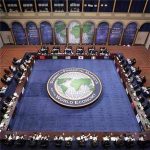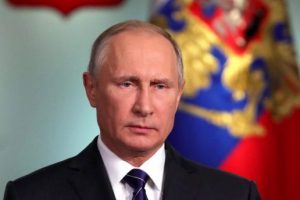China needs the stable dollar. China’s Assistant Finance Minister Zhu Guangyao said that China would propose the USA to take measures to “maintain the basically stable dollar exchange rate and protect the safety of China’s investments in the U.S,” Interfax reports.
Beijing is going to put forward these requirements to American authorities in the context of the United States-China Strategic and Economic Dialogue – the conference which is slated to take place on July 27-28 in Washington.
China ’s keen interest in the dollar can be explained. The nation is the world’s biggest holder of U.S. government bonds. For May 2009, Beijing holds $801.5 billion of US Treasuries.
China ’s investment in the US government debt has surged twofold to $763.5 billion within three years (till May 2009).
By the end of April 2009 the investment in the US Treasuries accounted for 38 percent of China’s gold and foreign exchange reserves.
The PRC gold and foreign exchange reserves has risen to a record sum of $2.13 trillion. Moreover, the forex reserves make the largest share of gold and foreign exchange reserves.
The share of gold in the Chinese reserves makes “barely” 1.054 tons (while the USA has 8.300 tons). By the Chinese government opinion one can speak of secure economy only after this ratio achieves 5.000 tones.
At the same time, China is dependant on the USA in terms of credit activities, as only the US Treasuries market can accept the huge volume of money that China possesses.
The Chinese assets have lost their value during the economic crisis, which raised serious concerns with the Chinese authorities.
According to experts’ estimates, China is interested in the stable dollar for two reasons: because of the national reserves and from the point of view of the exports.
China is the biggest goods exporter to the US market. The strong dollar makes the exported Chinese goods cheaper and thus more competitive. That’s why the nation’s government artificially keeps the yuan weaker against the dollar.
The United States on its part wants China to establish the free exchange rate for the yuan as soon as possible. As for dollar rate the USA is interested in both strengthening and weakening the dollar.
The stable dollar makes it possible to attract funds to the American market to boost the economy. However, the weak currency under crisis conditions makes US goods more attractive (in comparison with the Chinese). The Americans will primarily follow their own interests, while solving the currency rate question.
However, the Chinese authorities have already taken a series of measures to reduce the nation’s dependence on the US dollar.
In March 2009 the head of the Chinese Central Bank proposed to replace the dollar as the international reserve currency with a basket of currencies determined by the International Monetary Fund.
The most ambitious project in this connection was the recognition of the Chinese yuan as the reserve currency, although Western experts regarded the idea skeptically.
Besides, China held a series of negotiations with Argentine, Hong-Kong, Indonesia, Malaysia, South Korea and Belarus to perform direct settlements in national currencies. It technically means that China does not need the dollar in its commercial activities with the above mentioned countries. However, China’s turnover with those countries makes $95 billion a year, while the volume of trade with the USA amounted to $333 billion in 2008.
Daria Yurischeva
sursa: pravda.ru












Adauga comentariu